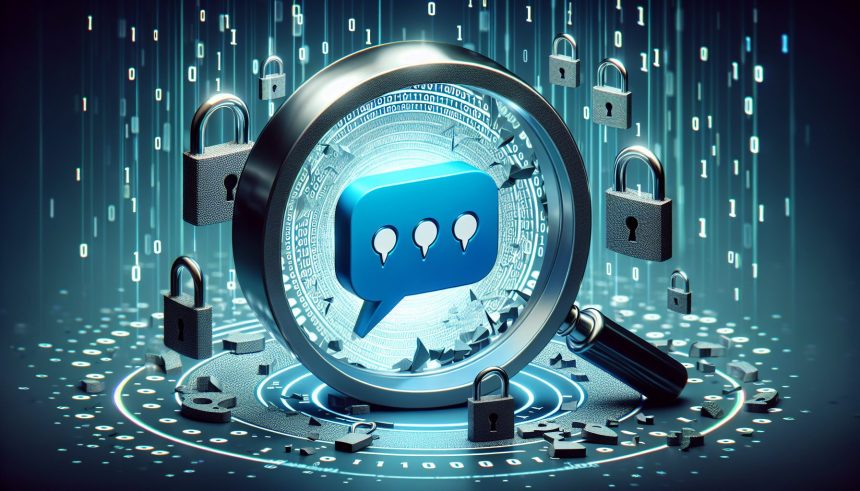Apple’s iMessage service, popular amongst millions of iPhone users, is currently under scrutiny due to shifting interests and potential security concerns. An increasing interest in alternatives and the void left by WhatsApp’s recent announcement regarding end-to-end encryption incompatibility with its upcoming third-party chat feature, have put iMessage into sharp focus.
This disclosure has led to questions concerning the integrity of messages sent via iMessage to non-Apple devices. The spotlight on the vulnerability of private communications stresses the ever-growing need for robust end-to-end encryption for all communication apps, regardless of platform. Secure third-party chat features are once again underscored as a must to prevent potential data breaches and maintain user confidence.
The potential issue with iMessage lies in its lack of end-to-end encryption for messages sent outside of the Apple network, opening possibilities for breach in transit. This perceived risk has led to advocates calling for higher, universal encryption standards. Though secure within Apple’s own network, the robustness of iMessage’s security measures may not extend fully to interactions with other, non-Apple systems.
Third-party applications like Beeper Mini are making strides to patch these vulnerabilities. Beeper acts as a hub for several popular messaging apps, amalgamating different channels into one interface for the convenience of its users. Despite current unavailability for iMessage integration, the Beeper team is aiming to expand compatibility and include other essential messaging apps to improve the overall user experience.
RCS (Rich Communication Services), while bringing user-friendly features like one-click responses and media sharing, lacks full end-to-end encryption. Thus, privacy-concerned users might find its security features lacking. Users are encouraged to evaluate platforms and consider any potential shortfalls in security.
With SMS messaging proving to be outdated and limited, the call for more secure alternatives amplifies. This call only got louder with Facebook Messenger’s decision to default to encryption. This has spurred the debate on the exclusivity of iMessage to Apple users and the implications it has on user freedom and safety against the backdrop of proliferating cyber-attacks. The quest to ensure data privacy has thus become a journey of navigating the digital landscape with the best encryption practices, calls to improve upon existing platforms and the creation of more robust messaging systems.







